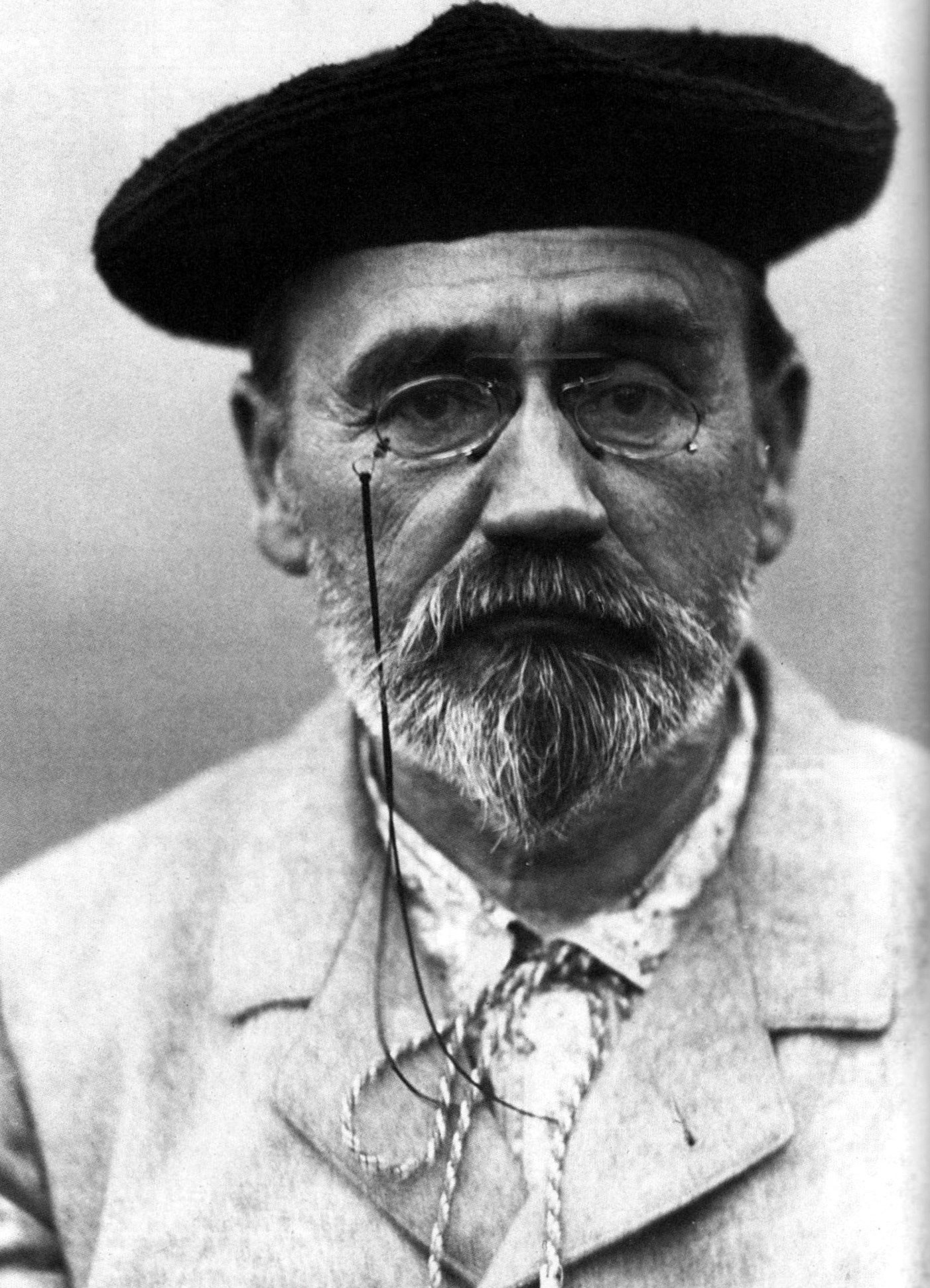
Émile Zola
Émile Édouard Charles Antoine Zola (/ˈzoʊlə/,[1][2] also US: /zoʊˈlɑː/,[3][4] French: [emil zɔla]; 2 April 1840 – 29 September 1902)[5] was a French novelist, journalist, playwright, the best-known practitioner of the literary school of naturalism, and an important contributor to the development of theatrical naturalism.[6] He was a major figure in the political liberalization of France and in the exoneration of the falsely accused and convicted army officer Alfred Dreyfus, which is encapsulated in his renowned newspaper opinion headlined J'Accuse…! Zola was nominated for the first and second Nobel Prize in Literature in 1901 and 1902.[7][8]
Émile Zola
Émile Édouard Charles Antoine Zola
2 April 1840
Paris, France
29 September 1902 (aged 62)
Paris, France
Novelist, journalist, playwright, poet
French
Éléonore-Alexandrine Meley
- François Zola (father)
- Émilie Aubert (mother)
Early life[edit]
Zola was born in Paris in 1840 to François Zola (originally Francesco Zolla) and Émilie Aubert. His father was an Italian engineer with some Greek ancestry,[9] who was born in Venice in 1795, and engineered the Zola Dam in Aix-en-Provence; his mother was French.[10] The family moved to Aix-en-Provence in the southeast when Émile was three years old. In 1845, five-year-old Zola was sexually molested by an older boy.[11] Two years later, in 1847, his father died, leaving his mother on a meager pension. In 1852, Zola entered the Collège Bourbon as a boarding student. He would later complain about poor nutrition and bullying in school.[12]
In 1858, the Zolas moved to Paris, where Émile's childhood friend Paul Cézanne soon joined him. Zola started to write in the Romantic style. His widowed mother had planned a law career for Émile, but he failed his baccalauréat examination twice.[13][14]
Before his breakthrough as a writer, Zola worked for minimal pay as a clerk in a shipping firm and then in the sales department for the publisher Hachette.[14] He also wrote literary and art reviews for newspapers. As a political journalist, Zola did not hide his dislike of Napoleon III, who had successfully run for the office of president under the constitution of the French Second Republic, only to use this position as a springboard for the coup d'état that made him emperor.
Later life[edit]
In 1862 Zola was naturalized as a French citizen. In 1865, he met Éléonore-Alexandrine Meley, who called herself Gabrielle, a seamstress, who became his mistress.[13] They married on 31 May 1870.[15] Together they cared for Zola's mother.[14] She stayed with him all his life and was instrumental in promoting his work. The marriage remained childless. Alexandrine Zola had had a child before she met Zola that she had given up, because she had been unable to take care of it. When she confessed this to Zola after their marriage, they went looking for the girl, but she had died a short time after birth.
In 1888, he was given a camera, but he only began to use it in 1895 and attained a near professional level of expertise.[16] Also in 1888, Alexandrine hired Jeanne Rozerot, a 21-year-old seamstress who was to live with them in their home in Médan.[17] The 48-year-old Zola fell in love with Jeanne and fathered two children with her: Denise in 1889 and Jacques in 1891.[18] After Jeanne left Médan for Paris, Zola continued to support and visit her and their children. In November 1891 Alexandrine discovered the affair, which brought the marriage to the brink of divorce. The discord was partially healed, which allowed Zola to take an increasingly active role in the lives of the children. After Zola's death, the children were given his name as their lawful surname.[19]
The Manifesto of the Five[edit]
On August 18, 1887, the French daily newspaper Le Figaro published "The Manifesto of the Five" shortly after La Terre was released. The signatories included Paul Bonnetain, J. H. Rosny, Lucien Descaves, Paul Margueritte and Gustave Guiches, who strongly disapproved of the lack of balance of both morals and aesthetics throughout the book's depiction of the revolution. The manifesto accused Zola of having "lowered the standard of Naturalism, of catering to large sales by deliberate obscenities, of being a morbid and impotent hypochondriac, incapable of taking a sane and healthy view of mankind. They freely referred to Zola's physiological weaknesses and expressed the utmost horror at the crudeness of La Terre."[35]
Quasi-scientific purpose[edit]
In Le Roman expérimental and Les Romanciers naturalistes, Zola expounded the purposes of the "naturalist" novel. The experimental novel was to serve as a vehicle for scientific experiment, analogous to the experiments conducted by Claude Bernard and expounded by him in Introduction à la médecine expérimentale. Claude Bernard's experiments were in the field of clinical physiology, those of the Naturalist writers (Zola being their leader) would be in the realm of psychology influenced by the natural environment.[13] Balzac, Zola claimed, had already investigated the psychology of lechery in an experimental manner, in the figure of Hector Hulot in La Cousine Bette. Essential to Zola's concept of the experimental novel was dispassionate observation of the world, with all that it involved by way of meticulous documentation. To him, each novel should be based upon a dossier. With this aim, he visited the colliery of Anzin in northern France, in February 1884 when a strike was on; he visited La Beauce (for La Terre), Sedan, Ardennes (for La Débâcle) and travelled on the railway line between Paris and Le Havre (when researching La Bête humaine).[50]